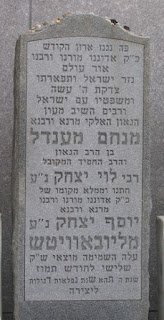"You mention that a certain man in one of the cities of Yemen pretends that he is the Messiah.17 As I live, I am not surprised at him or at his followers, for I have no doubt that he is mad and a sick person should not be rebuked or reproved for an illness brought on by no fault of his own. Neither am I surprised at his votaries, for they were persuaded by him because of their sorry plight, their ignorance of the importance and high rank of the Messiah, and their mistaken comparison of the Messiah with the son of the Mahdi [the belief in] whose rise they are witnessing. But I am astonished that you, a scholar who has studied carefully the doctrines of the rabbis, are inclined to repose faith in him. Do you not know, my brother, that the Messiah is a very eminent prophet, more illustrious than all the prophets after Moses? Do you not know that a false pretender to prophecy is liable to capital punishment, for having arrogated to himself unwarranted distinction, just as the person who prophesies in the name of idols is put to death, as we read in Scripture "But the prophet that shall speak a word presumptuously in My name, which I have not commanded him to speak, or that shall speak in the name of other gods, that same prophet shall die." (Deuteronomy 18:20). What better evidence is there of his mendacity, than his very pretensions to be the Messiah.
Do these characteristics make him a Messiah? You were beguiled by him because you have not considered the pre-eminence of the Messiah, the manner and place of his appearance, and the marks whereby he is to be identified. The Messiah, indeed, ranks after Moses in eminence and distinction, and God has bestowed some gifts upon him which he did not bestow upon Moses, as may be gathered from the following verses: "His delight shall be in the fear of the Lord." (Isaiah 11:3). "The Spirit of the Lord shall rest upon him." (11:2). "And Righteousness shall be the girdle of his loins." (11:5). Six appellations were divinely conferred upon him as the following passage indicates: "For a child is born unto us, and a son is given unto us, and the government is upon his shoulder, and he is called Pele, Yoetz, el, Gibbor, Abiad, Sar-Shalom." (Isaiah 9:5). And another verse alluding to theMessiah culminates in the following manner "Thou art my son, this day have I begotten thee." (Psalms 2:7). All these statements demonstrate the pre-eminence of the Messiah."
As to the place where the Messiah will make his first appearance, Scripture intimates that he will first present himself only in the Land of Israel, as we read, "He will suddenly appear in His Temple" (Malachi 3:1). As for the advent of the Messiah, nothing at all will be known about it before it occurs. The Messiah is not a person concerning whom it may be predicted that he will be the son of so and so, or of the family of so and so. On the contrary he will be unknown before his coming, but he will prove by means of miracles and wonders that he is the true Messiah. Scripture in allusion to his mysterious lineage says, "His name is the Shoot, and he will shoot up out of his place" (Zechariah 6:12). Similarly, Isaiah referring to the arrival of the Messiah implies that neither his father nor mother, nor his kith nor kin will be known, "For he will shoot up right forth as a sapling, and as a root out of the dry ground." (53:2). After his manifestation in Palestine, Israel will be gathered in Jerusalem and the other cities of Palestine. Then will the tidings spread to the East and the West until it will reach you in Yemen and those beyond you in India as we learn from Isaiah.
I beg you to send a copy of this missive to every community in the
cities and hamlets, in order to strengthen the people in their faith and
to put them on their feet. Read it at public gatherings and in
private, and you will thus become a public benefactor. Take adequate
precautions lest its contents be divulged to the Gentiles by an evil
person and mishap overtake us (God spare us therefrom).22
When I began writing this letter I had some misgivings about it, but
they were overruled by my conviction that the public welfare takes
precedence over one's personal safety. Moreover, I am sending it to a
personage such as you, "and the secret of the Lord may be entrusted to
those who fear Him." Our sages, the successors of the prophets, assured
us that persons engaged in a religious mission will meet with no
disaster (Pesahim 8b). What more important religious mission is there
than this. Peace be unto all Israel. Amen.
*
THE EPISTLE TO YEMEN, probably a compilation of several shorter responsa, was written by Maimonides about 1172 in reply to an inquiry (or inquiries) by Jacob ben Netan'el al-Fayyūmi, the then head of the Jewish community in Yemen. The exchange of letters was occasioned by a crisis through which the Jews of that country were passing. A forced conversion to Islam, inaugurated about 1165 by 'Abd-al-Nabī ibn Mahdi, who had gained control over most of Yemen, threw the Jews into panic. The campaign conducted by a recent convert to win them to his new faith, coupled with a Messianic movement started by a native of the country who claimed he was the Messiah, increased the confusion within the Jewish community. Rabbi Jacob evidently sought guidance and encouragement, and Maimonides attempted to supply both.
In the course of his reply Maimonides deals at length with several subjects which were live issues in his time. In the Hebrew introduction these topics are analyzed in detail. Here only a brief summary will be presented.

